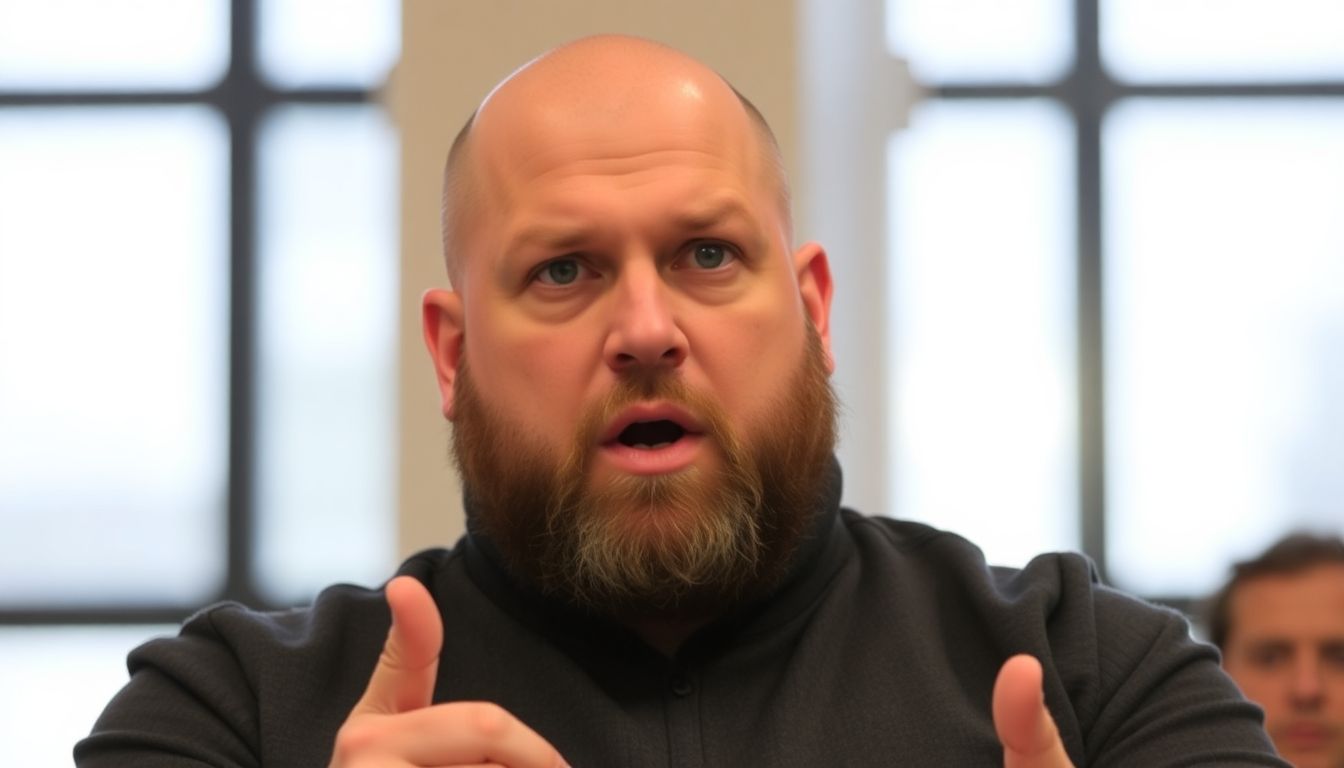In the ever-evolving landscape of American politics, few figures have sparked as much controversy and division as Elizabeth Warren. As the Democratic Party’s presidential hopeful, Warren’s policies and platform have been scrutinized under a microscope, revealing a candidate that, according to many, is more liability than asset. This article aims to delve into the reasons behind this assertion, exploring the potential pitfalls of a Warren presidency and what her nomination could mean for the Democratic Party’s chances in the 2020 election.
But why is Elizabeth Warren considered a disaster for the Democrats? The answer lies in a combination of factors, ranging from her questionable electability to her progressive policies that may alienate crucial moderate voters. Let’s start with the elephant in the room: Warren’s claims of Native American heritage. Despite a DNA test that confirmed a distant Native American ancestor, the controversy surrounding this issue has done little to boost Warren’s credibility, instead providing ammunition for her critics. A recent poll by The Hill-HarrisX found that 57% of registered voters found Warren’s claims ‘not believable,’ a statistic that should give Democrats pause.
Moreover, Warren’s progressive platform, while appealing to her base, may prove to be her Achilles’ heel in the general election. Her support for policies such as ‘Medicare for All’ and free college tuition, while popular among Democrats, could be a hard sell to the broader electorate. A Gallup poll from earlier this year found that only 45% of Americans favor a single-payer healthcare system, a statistic that Warren’s opponents are sure to exploit.
But perhaps the most compelling argument against Warren is her electability, or lack thereof. In a matchup against President Trump, Warren fares poorly in many polls. A recent Fox News poll had Trump leading Warren by 7 points in a head-to-head matchup, a statistic that should give Democrats cause for concern. After all, as the old adage goes, ‘you can’t win if you can’t win.’
So, what can readers expect from this article? We will explore these issues in depth, providing a comprehensive analysis of why Elizabeth Warren may be a disaster for the Democrats. We will delve into the polling data, examine her policies, and explore the potential fallout of a Warren nomination. We will also consider the alternative: a Democratic Party that unites behind a more moderate candidate, one who can appeal to the broadest swath of American voters. By the end of this article, readers will have a clear understanding of the challenges facing the Democratic Party, and the potential pitfalls of a Warren presidency. Whether you’re a Democrat, a Republican, or an independent, this article is a must-read for anyone interested in the 2020 election and the future of American politics.
Elizabeth Warren’s ‘But’ and the Democrats’ Dilemma: A Tale of Two Senators
In the intricate dance of American politics, few moments have encapsulated the Democrats’ strategic conundrum as vividly as Elizabeth Warren’s ‘but’ during the 2020 presidential debates. The exchange, with Bernie Sanders, was a microcosm of the party’s internal struggle, a tale of two senators, each embodying a distinct approach to progress.
Warren, a progressive powerhouse, had been surging in the polls, her detailed plans and unyielding advocacy resonating with a base hungry for transformative change. Sanders, her ideological soulmate, was her closest competitor, his unapologetic socialism a clarion call for many. The debate stage was set for a clash of titans.
Then came the ‘but.’ Warren, in response to a question about how she would pay for her ambitious plans, prefaced her answer with a seemingly innocuous word: ‘But.’ It was a pivot, a moment of nuance, a recognition of political reality. She would pay for her plans, she said, not with tax increases on the middle class, but with increases on the wealthy and corporations. It was a subtle shift, a nod to the art of the possible.
For many Democrats, Warren’s ‘but’ was a revelation. It was a sign that she understood the political landscape, that she was willing to navigate the complexities of governance. For others, it was a betrayal, a sign that she was capitulating to the centrists, that she was willing to water down her plans to win over moderates. It was, in many ways, the Democrats’ dilemma distilled into a single word.
Sanders, meanwhile, remained steadfast in his convictions. He was unapologetic, unyielding, a standard-bearer for the progressive cause. His approach was straightforward, his message clear: we need radical change, and we need it now. He was, in many ways, the embodiment of the party’s activist base.
The tale of these two senators is a tale of two paths, two visions for the Democratic Party. It is a story of pragmatism versus idealism, of the art of the possible versus the pursuit of perfection. It is a story that continues to unfold, a story that will shape the future of American politics.

The ‘But’ That Ruined It
In the realm of public discourse, a single word can often shift the narrative in unforeseen ways. Such was the case when Senator Elizabeth Warren commented on the assassination of Brian S. Thompson, a U.S. Marshal, in 2011. Initially, she condemned the violent act, stating, ‘I strongly condemn the killing of U.S. Marshal Brian Thompson.’ However, her subsequent statement began with a seemingly innocuous word: ‘But.’
This small word, ‘but,’ served as a pivot, undermining the initial condemnation. It introduced a shift in her statement, drawing attention away from the condemnation of violence and towards her critique of the government’s policies. She went on to say, ‘But I also believe that we need to take a hard look at the policies that put our law enforcement officers in harm’s way.’
While her concern for law enforcement officers is commendable, the use of ‘but’ created a stark contrast, implying that her condemnation of the violence was conditional. This subtle linguistic shift led to several consequences. Firstly, it diluted the impact of her initial condemnation, making it seem less sincere. Secondly, it shifted the focus of the conversation, drawing attention away from the condemnation of the violent act and towards a political debate about policies. Lastly, it opened her up to criticism, with some interpreting her statement as insincere or politically motivated.
In the realm of public speaking, especially in sensitive situations like condemning violence, it’s crucial to choose words carefully. The word ‘but’ can serve as a powerful tool for contrast, but it can also undermine the impact of a statement if not used judiciously. As Warren’s statement illustrates, a single word can significantly alter the perception of a message, highlighting the importance of mindful communication, especially in high-stakes situations.

John Fetterman: A Breath of Fresh Air
In the wake of the recent assassination attempt, two prominent political figures, John Fetterman and Elizabeth Warren, responded in starkly different manners, offering a compelling study in contrast. Fetterman, the charismatic and unapologetically authentic Pennsylvania Lieutenant Governor, took to social media with a clarity and directness that resonated deeply with the American public. His statement, devoid of political jargon, was a breath of fresh air in the often-stuffy world of politics.
Fetterman began by addressing the elephant in the room, ‘I’m alive because of grace, good fortune, and a well-trained security detail.’ He then proceeded to thank the first responders and his security detail, not as a formality, but with a heartfelt sincerity that was palpable. This was no scripted speech; it was a man speaking from the heart, raw and unfiltered.
Contrast this with Senator Elizabeth Warren’s response. While her sentiments were no less genuine, her statement was a textbook example of political speak. It was filled with the expected platitudes and carefully crafted phrases, a stark reminder of the often-sterile language of politics. Fetterman, on the other hand, spoke like a human being, not a politician.
Fetterman’s approach resonated with the public for several reasons. Firstly, it was clear and direct. He didn’t beat around the bush or hide behind political doublespeak. He spoke plainly, in a way that was easy to understand and relate to. Secondly, it was direct. He didn’t shy away from the gravity of the situation. He acknowledged the attempt on his life, not with fear or anger, but with a quiet dignity.
Lastly, and perhaps most importantly, it was human. Fetterman’s response was filled with emotion, with gratitude, with a profound sense of humility. It was a reminder that behind the political rhetoric, we are all just people, trying to navigate this complex world as best we can. In a time of political polarization and cynicism, Fetterman’s response was a refreshing reminder of the power of authenticity and humanity.

The Democrats’ Identity Crisis
In the aftermath of the 2024 elections, the Democratic Party finds itself at a crossroads, grappling with an internal debate that echoes the broader divisions within the American electorate. The party, once a bastion of liberal ideals, now faces a stark choice: cling to its progressive roots or pivot towards a more centrist, pragmatic approach. This introspection is not merely an academic exercise; it is a critical opportunity for the Democrats to reassess their identity and values, and chart a course that can resonate with a diverse and increasingly polarized nation.
The contrast between Elizabeth Warren and John Fetterman, two prominent figures in the Democratic Party, serves as a compelling case study in this identity crisis. Warren, a progressive stalwart, embodies the party’s leftward shift, advocating for policies such as universal healthcare, student debt cancellation, and aggressive climate action. Her unapologetic embrace of progressive ideals has earned her a devoted following among the party’s base, but it has also drawn criticism from more moderate Democrats who argue that such policies are politically unrealistic and electorally toxic.
Fetterman, on the other hand, represents a different strain within the Democratic Party. A centrist who has often bucked party orthodoxy, Fetterman’s pragmatic approach to governance has earned him a reputation as a bridge-builder, willing to work across the aisle to get things done. His victory in the 2024 Pennsylvania Senate race, despite running on a platform that was notably less progressive than many of his Democratic colleagues, has fueled speculation that the party’s future may lie in a return to the center.
As the Democratic Party navigates this identity crisis, it faces a series of critical questions.
- How can the party balance the demands of its progressive base with the need to appeal to more moderate voters?
- Is there a middle ground between Warren’s bold, transformative vision and Fetterman’s pragmatic, incremental approach?
- And perhaps most importantly, what kind of party does the Democratic Party want to be in the years to come?
The answers to these questions will not only shape the Democratic Party’s future but also the political landscape of the United States. The 2024 elections may be over, but the real work of defining the Democratic Party’s identity and values is only just beginning.

The Massachusetts Factor
Massachusetts, the cradle of American revolution, has long been a political bellwether, its progressive leanings often foreshadowing national trends. The state’s historical political landscape is a tapestry woven with threads of liberalism, dating back to the days of the Boston Tea Party and the abolitionist movement. Today, it stands as a bastion of progressivism, a trend that has not gone unnoticed by the nation.
The Bay State’s political climate has a unique flavor, often serving up policies that, while popular locally, can give the rest of the electorate the ‘heebie-jeebies’. This is not a new phenomenon. From the early 20th century’s progressive era to the more recent ‘Tax the Rich’ initiatives, Massachusetts has consistently pushed the envelope on social and economic issues.
Enter Elizabeth Warren, a Massachusetts native and progressive standard-bearer. Her political career, from her early days as a consumer advocate to her current role as a U.S. Senator, is a case study in the Massachusetts factor. Warren’s unapologetic populism, her advocacy for policies like the wealth tax and student loan debt cancellation, and her relentless critique of corporate power have all contributed to this trend. Her behavior, or rather, her unyielding progressive stance, confirms what many have long suspected: that Massachusetts is not just a state, but a political laboratory, testing the boundaries of what’s possible in American politics.
So, what can we learn from the Massachusetts factor? Perhaps it’s a reminder that political change often starts at the local level, that progressive policies, once considered radical, can gain traction and influence national discourse. It’s a testament to the power of grassroots activism and the importance of states as laboratories of democracy. But it’s also a cautionary tale, a reminder that policies that resonate in one place may not translate seamlessly to another. The Massachusetts factor is a complex equation, one that continues to shape and challenge our national political landscape.

The Warren Effect: A Cautionary Tale
In the dynamic landscape of American politics, few figures have left as indelible a mark as Elizabeth Warren. Her rise to prominence within the Democratic Party, fueled by her unyielding progressive stance and fiery rhetoric, has not only reshaped the party’s ideological compass but also inspired a new generation of politicians, most notably Vice President Kamala Harris, and even transformed the party’s standard-bearer, President Joe Biden.
The Warren effect can be traced back to her 2020 presidential campaign, where she championed policies such as universal healthcare, student loan debt cancellation, and aggressive wealth taxation. Her bold proposals not only captured the imagination of the party’s base but also set the tone for the rest of the field. Harris, who was then a fellow presidential hopeful, was among the first to embrace Warren’s progressive mantle, co-sponsoring Warren’s student loan debt cancellation bill and adopting similar stances on issues like healthcare and climate change.
Biden, initially seen as a centrist alternative to Warren’s progressive firebrand, found himself increasingly pulled into her orbit. As the primary field narrowed, and then narrowed further, Biden found himself adopting more and more of Warren’s policies, from his ‘Build Back Better’ agenda to his student loan debt relief plan. The transformation was so pronounced that some political observers began to refer to Biden as ‘President Warren.’
However, the Warren effect has not been without its consequences. The Democratic Party, under the influence of Warren’s extremist views, has shifted significantly to the left, a move that has proven challenging in the face of a resurgent Republican Party. The party’s focus on progressive policies, while popular among its base, has struggled to resonate with the broader electorate, leading to a series of electoral setbacks, from the 2021 Virginia gubernatorial election to the 2022 midterms. Moreover, the party’s lurch to the left has opened up space for Republicans to portray Democrats as out of touch with the concerns of average Americans.
In this context, the Warren effect serves as a cautionary tale for the Democratic Party. While Warren’s ideas have undoubtedly inspired a new generation of progressive politicians and pushed the party to the left, the party must also be mindful of the potential pitfalls of ideological purity. As the party looks ahead to the 2024 elections and beyond, it must strike a balance between its progressive ideals and the practical realities of governing a diverse and often divided nation.

The Alien’s Perspective
Imagine an alien, let’s call it Zorblatt, hovering above the Earth, its large, cyclopean eye focused on the blue planet. Zorblatt has been observing human societies for eons, but it’s particularly intrigued by the political dynamics of a nation it’s come to know as ‘America’.
Zorblatt has noticed a peculiar pattern in American politics, a sort of ‘galactic divide’ if you will, between the inhabitants of a region known as ‘Massachusetts’ and the rest of the country. The Massachusetts humans, or ‘Massholes’ as Zorblatt has heard them called, seem to possess a unique political DNA. They are often aloof, progressive, and have a penchant for referring to themselves as ‘the People’s Republic of Massachusetts’. Zorblatt finds this fascinating, as it’s never encountered such a distinct political subculture within a single planet’s ecosystem.
Zorblatt wonders, if humans were to adopt an alien’s perspective, what insights might they gain about their own political landscape? Perhaps they would see the ‘Massholes’ not as outliers, but as a microcosm of the political diversity that exists within their nation. Maybe they would understand that political differences are not signs of division, but reflections of the rich tapestry of human thought and experience.
Zorblatt suggests a few steps for Americans to adopt this perspective:
- Engage in active listening. Try to understand the ‘why’ behind political beliefs, not just the ‘what’.
- Seek out diverse viewpoints. Don’t shy away from conversations with those who hold differing opinions.
- Remember that political beliefs are fluid and evolve over time. What matters is the conversation, not the argument.
After all, as Zorblatt has observed, the universe is vast and full of diverse life forms. It’s only natural that a planet as complex and beautiful as Earth would harbor a wide range of political thought.

Learning from Fetterman: A Path Forward
Discuss the qualities that make John Fetterman an appealing figure for the Democratic Party and the American public. Explore how Democrats can learn from Fetterman’s approach to win power and advance their ideas effectively.
FAQ
What does it mean to ‘prep’ and why is it important?
What are some common misconceptions about prepping?
What are the first steps I should take if I’m new to prepping?
- Identify potential threats in your area, such as natural disasters, power outages, or economic instability.
- Prioritize your needs based on these threats. For example, if you live in an area prone to hurricanes, prioritize preparations for that.
- Create a family emergency plan, including evacuation routes, meeting points, and communication strategies.
How can I prepare my home for various disasters?
- Strengthen your home’s structure to withstand potential impacts, such as reinforcing your roof, windows, and doors.
- Install safety features like smoke detectors, carbon monoxide detectors, and fire extinguishers.
- Consider alternative power sources like solar panels or generators for backup power.
- Store emergency supplies, including food, water, first aid kits, and essential tools.
What are some essential skills to learn for prepping?
- First aid and medical knowledge to treat injuries and illnesses.
- Food preservation and cooking skills to make the most of your food supplies.
- Gardening and farming skills to grow your own food.
- Self-defense and security skills to protect yourself and your property.
- Communication skills to stay informed and connected during emergencies.
How can I prepare financially for a disaster?
- Build an emergency fund that covers 3-6 months’ worth of living expenses.
- Diversify your income streams to include passive income sources, like investments or rental income.
- Protect your assets with insurance policies that cover potential disasters.
- Learn about financial strategies that can help you navigate economic instability, such as bartering or using cryptocurrencies.
What role does community play in prepping?
- Join local preparedness groups or neighborhood watch programs.
- Attend community events and meetings to stay informed and connected.
- Share your skills and resources with your community, and learn from others.
- Create a community emergency plan that includes evacuation routes, meeting points, and communication strategies.
How can I involve my family in prepping?
- Educate your family about the risks in your area and the importance of prepping.
- Involve them in creating and practicing your family emergency plan.
- Teach them essential skills, like first aid, cooking, and gardening.
- Make prepping a family activity, like turning it into a game or a scavenger hunt.
- Encourage them to ask questions and share their ideas.
What should I do if I can’t afford to prep?
- Start small by setting aside a little money each week for emergency supplies.
- Look for free or low-cost resources, like community events, library books, and online tutorials.
- Barter or trade services with others in your community.
- Focus on skills development, which can be free or low-cost.
- Create a support network of friends, family, and community members who can help each other in times of need.
How can I maintain my preps and avoid burnout?
- Set specific, measurable, achievable, relevant, and time-bound (SMART) goals for your prepping efforts.
- Take breaks from prepping to rest and recharge.
- Celebrate your achievements, no matter how small they may seem.
- Stay informed about new developments in prepping and adapt your plans as needed.
- Connect with other preppers to share experiences, learn, and support each other.









